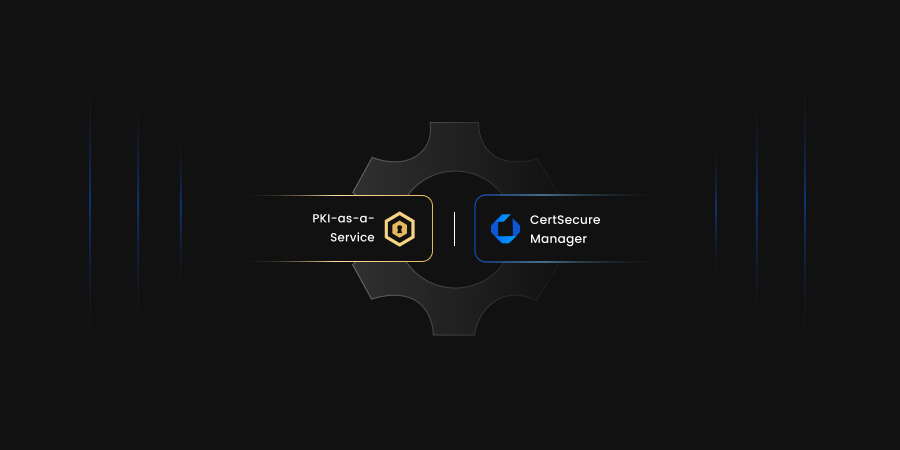You may not be aware of this, but digital certificates comprise a significant portion of your online connections. Whether you are connecting to a Wi-Fi network, a website, or a different server within your organization, digital certificates facilitate that connection. They come in many different forms, from web server connection certificates to User certificates, so it is essential to understand the different types and how to interact with them. Most of you may be familiar with SSL/TLS (Secure Sockets Layer/Transport Layer Security) certificates from your own experience. Still, many more come into play in important ways when using the Internet. Let’s take a closer look at the various types of certificates.
Digital Certificate Types
The most used and well-known certificates are SSL/TLS certificates. Also utilized throughout the Internet are User or Device Certificates, Code Signing Certificates, and CA certificates. These are some of the most commonly used certificates across various organizations and infrastructures that you are likely to encounter. The importance of understanding these certificates comes from the trust they provide to users and different systems. These certificates secure the basis of trust on the Internet. It is essential to understand that all these certificates will utilize some form of encryption in their processes.
The first and simplest version of encryption we will likely discuss regarding certificates is symmetric encryption. Symmetric encryption is less commonly used today, as it is less secure than its counterpart, asymmetric encryption. Symmetric encryption utilizes a single key for both encryption and decryption. As you can see, this is an extremely unsafe method of securing communications, as each end-user requires access to this key to encrypt or decrypt the message, which would allow them to use this key to sign messages as if they were the owner of the key. For this reason, symmetric encryption is more commonly used for tasks such as encrypting large amounts of data, as opposed to encrypting direct communication.
The other method of encryption is asymmetric encryption. With this method of encryption, two keys are generated and mathematically linked: a private and a public key. The public key is used to encrypt messages, while the private key is used to decrypt these messages. This is the most common method of encryption, as anyone in the world can use the public key, while the private key is accessible only to the key’s creator. Now that we have a bit of a better understanding of what the two different types of encryption are, let’s take a look at the different digital certificate types. The first certificate type we will discuss is the SSL/TLS certificate.
SSL/TLS Certificates
SSL/TLS certificates secure communications between an end-user and a server, whether that be a web server, mail server, LDAP server, or other similar services. An SSL/TLS certificate is most commonly used to encrypt data between a user and a website, making it an ideal scenario to explain how these certificates work.
If you look at the webpage you are reading this blog on and look at the left side of the search bar, you should see an icon next to the URL. Clicking this icon will allow you to view the SSL/TLS certificate associated with our webpage if you select the lock option. This certificate ensures that you have a secure connection to the webpage, where all communications between you and the website are protected from potential threat actors who may attempt to intercept them.
These certificate types utilize asymmetric encryption to safeguard the data exchanged between the user and the webpage. SSL/TLS certificates not only protect communications between a user and a webpage, but also authenticate the identity of the website’s owner. One other note to make about SSL/TLS certificates is the different terminology used for validation. These different types of certificates are called Domain Validated, Organization Validated, and Extended Validation. The DV certificate needs the least level of identity for verification, whereas the EV needs the most.
User/Device Certificates
Another commonly seen type of certificate is a User or Device certificate. These are extremely similar certificates, which is why we put them together in this section. You may also hear these referred to as client certificates. These types of certificates identify a device or user within an organization. Most commonly, we see these types of certificates used in businesses to allow different devices or users to access specific data or information within the business. Most organizations will only allow specific data to be accessed by those users who need to have access to that data to complete their job. To restrict access to this data to only specific users, user/device certificates are utilized.
When attempting to access the information, the server storing the data will request the certificate from the user or device and then verify that the user or device is authorized to access the data. If they identify as someone who can access the data, then they are allowed onto the server. If not, they are blocked from accessing that data. Think of these certificates as a more advanced version of using a password to access data or services in a business. You may also see these certificates used in two-factor authentication (2FA) schemes.
Code Signing Certificates
Another important type of certificate, especially for developers, is a code signing certificate. Code signing is a process where a piece of code or software is run through a hashing algorithm, which then outputs a unique hash digest. This hash digest is then encrypted using a private key, and the encrypted hash, along with the certificate associated with the private key, is combined to form a signature for that piece of code. This signature identifies the developer of the code and ensures that the end-user using that code or software can trust that the software does not contain any malware.
These code signing certificates are extremely vital to keep secure, as if an attacker gained access to the certificate or the key associated with it, they could create software embedded with malware and distribute it to users, who would believe your organization signed it. This is why a recent CA/Browser Forum ruling stated that code signing private keys must be secured within Hardware Security Modules (HSMs) to protect the keys from threat actors.
CA Certificates
The final type of digital certificate we will discuss is the Certificate Authority (CA) certificate. The CA certificate is a vital component of an organization’s infrastructure, as most organizations will have a Public Key Infrastructure (PKI). The PKI operates by utilizing a Root CA, which is maintained offline at all times. The only time it should be used is when a new Issuing CA is being put online. The Root CA will sign the Issuing CA’s certificate, allowing the Issuing CA to generate certificates for users, such as user, device, or code signing certificates, for them to use. These CA certificates are crucial because they are considered the root of trust in a Public Key Infrastructure (PKI).
If an attacker can steal the Root or Issuing CA certificate and sign any certificates they want, then they can access any data within the network that they want, even though they shouldn’t be able to.
Conclusion
As you can see, the majority of internet security is interwoven with various types of certificates to protect your online security. From User certificates to CA certificates, there is a lot to keep track of regarding digital certificates. Luckily, Encryption Consulting is here to help. At Encryption Consulting, we specialize in PKI, encryption, and certificates of all types, supporting our customers. We can help your organization design, implement, and manage your PKI, or you can use our Certificate Management Platform, CertSecure Manager.
CertSecure Manager is a one-stop solution for all your digital certificate management needs. Our platform prevents certificate outages, provides a single pane of glass for certificate management, and streamlines IT operations. To learn more about the services and products that Encryption Consulting offers, visit our website at www.encryptionconsulting.com.




